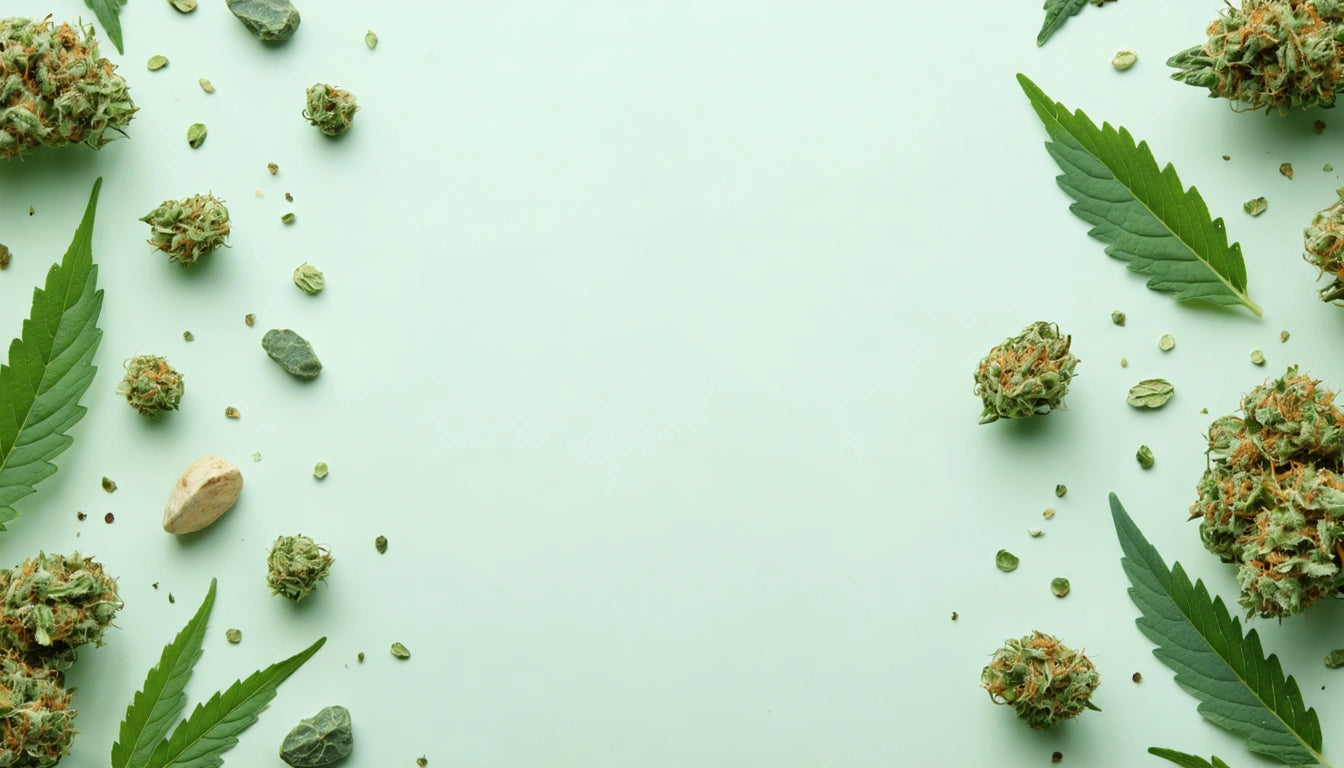Table of Contents
Understanding Weed Measurements and Pricing: Grams, Ounces, and Costs
Cannabis measurements and pricing can be confusing for newcomers to the market. Whether you're wondering how much is a g of weed or trying to understand the conversion between grams and ounces, this comprehensive guide breaks down everything you need to know about cannabis quantities and their typical costs.
Understanding Basic Weed Measurements
Cannabis is typically sold in metric measurements, with the gram being the base unit. Understanding these measurements is essential for making informed purchases and ensuring you're getting fair value.
The Metric System in Cannabis
The cannabis industry primarily uses the metric system for measurements:
- Gram (g): The base unit for smaller quantities
- Ounce (oz): Commonly used for larger purchases (28.35 grams)
- Pound (lb): Used primarily in wholesale transactions (16 ounces or 453.6 grams)
According to our guide to weed measurements, the gram serves as the foundation for all cannabis transactions, from retail to wholesale.
How Much is a Gram of Weed?
A gram of cannabis is the smallest amount typically sold at dispensaries. Visually, it's about the size of a large grape or enough to roll 1-2 joints, depending on how you roll them.
Cost of a Single Gram
How much does 1 g of weed cost? Prices vary significantly based on quality, location, and legality, but generally:
- Low-grade: $5-10 per gram
- Mid-grade: $10-15 per gram
- High-grade: $15-20+ per gram
These prices are averages, and as this resource on gram pricing explains, the cost can vary substantially between legal and illegal markets.
Common Weed Quantities and Conversions
Cannabis is sold in various quantities, with specific terminology for different amounts. Understanding these terms helps navigate dispensary menus and street purchases alike.
From Grams to Ounces
Common measurements include:
- 1 gram: A single gram (how much is 1 g of weed)
- Eighth (â…›): 3.5 grams
- Quarter ( ¼): 7 grams (how much is 2.5 g of weed plus 4.5g)
- Half ( ½): 14 grams (how much is a half of weed in g)
- Ounce (oz): 28.35 grams (how much is an oz of weed in g)
For those wondering how much is 2 g of weed or how much is 2gs of weed, it's simply twice the amount of a single gram, often enough for 2-4 joints depending on size.
Pricing Factors for Cannabis
Several factors influence how much you'll pay for cannabis:
Quality and Potency
Higher THC content and superior terpene profiles generally command premium prices. Top-shelf cannabis with 25%+ THC content can cost significantly more than average strains.
Quantity Discounts
Bulk purchases typically offer better value. While a single gram might cost $15, an ounce (28.35 grams) might cost $280, representing a savings of around $140 compared to buying 28 individual grams.
As noted in our guide to ounce pricing, buying in larger quantities almost always provides better value per gram.
Regional Price Variations
Cannabis prices vary dramatically by location due to legality, supply, and market maturity:
Legal vs. Illegal Markets
In established legal markets like Colorado or Oregon, competition has driven prices down, with grams sometimes available for as little as $5-8. In contrast, newer legal markets or illegal states may see prices of $15-25 per gram.
Urban vs. Rural Pricing
Urban areas with multiple dispensaries typically offer more competitive pricing than rural locations with limited access. The difference can be as much as 20-30% for the same product.
Storage Considerations for Different Quantities
Proper storage becomes increasingly important as you purchase larger quantities:
- For 1-2 grams: Small airtight containers work fine
- For eighths to quarters: Medium-sized glass jars with proper sealing lids that maintain freshness are ideal
- For half-ounces to ounces: Larger containers with humidity control packs help maintain quality over time
Proper storage preserves potency, flavor, and prevents mold growth, especially important when investing in larger quantities.
Future Trends in Cannabis Pricing and Measurements
The cannabis market continues to evolve, with several trends shaping how cannabis is measured and priced:
- Standardization: As legalization spreads, expect more consistent pricing and measurement standards
- Technology impact: Apps and online platforms are creating more price transparency across regions
- Potency-based pricing: Some markets are moving toward pricing based on THC/CBD content rather than weight alone
- Micro-dosing: Smaller, precisely measured amounts are becoming popular for controlled consumption
Understanding cannabis measurements and pricing helps consumers make informed decisions, whether purchasing a single gram or investing in larger quantities. As the market matures, expect more consistency in both measurements and pricing, though regional variations will likely persist due to differing regulatory environments and market conditions.











Leave a comment
All comments are moderated before being published.
This site is protected by hCaptcha and the hCaptcha Privacy Policy and Terms of Service apply.